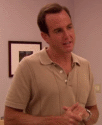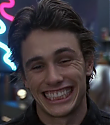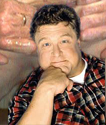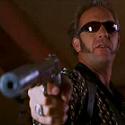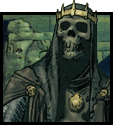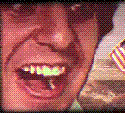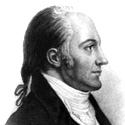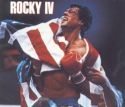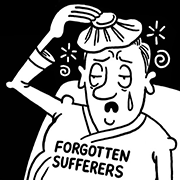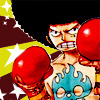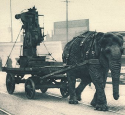|
The Sands of Sakkara by Glenn Meade.
|
|
|
|

|
| # ? Apr 20, 2024 07:42 |
|
Yiggy posted:The other night I finished Jeffrey Sachs's The End of Poverty: Economic Possibilities of our time. I thought it painted a pretty harrowing picture and made a compelling case of the need (and benefit to be gained) from increased effort to eliminate poverty by 2025. Maybe if I were an economist I would be on better ground to analyze his arguments, but from where I stand it seems pretty solid. I really wish the US was doing its part. I've really been meaning to read something other than fiction recently, especially since I'll have to impress a university on an application form pretty soon, and this seems like it might be a good idea. Thanks for the suggestion.
|
|
|
|
Pantaloon posted:Licensed to Kill: Hired Guns in the War on Terror by Robert Young Pelton. Already established as the man with the most 'sack in North America, he interviews the new PMC lords (notably Erik Prince and Tim Spicer) and rides shotgun with Blackwater contractors along the deadly Route Irish. An excellent blend of travelogue and journalism, it was informative and more than a little entertaining. Just finished reading Robert Kaplan's Imperial Grunts. It's a look at the US War on Terror around the world based on impressions and interviews while being embedded with special forces and marines in places like Yemen, The Phillipines, and of course Iraq and Ahfganistan. Kaplan is a visiting Prof. at the Naval War College and writes for The Atlantic. If you liked Licensed to Kill check out Kaplan. Just started his Eastward to Tartary and can't put it down.
|
|
|
|
Yiggy posted:Aaaahhhhhh. Your view is completely diametrical to my own, I really liked it =( Especially Gilbert Norrell. My interpretation: I never felt like the Fairy King was torturing those characters at all, at least not out of malice and intention. Though mad, I felt he strongly covetted Stephen Black and Arabella; hes not delighted in their pain, hes enamored with their presence and existence, and quite assuredly insane. I really wanted to like it, because her technical mastery is wonderful and I like that in an author. But I do have to ask, how the hell did you like Gilbert Norrell? The entire point of the character is that he's a terrible person. I actually can't think of one positive personality trait to ascribe to him. The only people worse than he is are Drawlight and Lascelles, and they get like the first 250 pages all to themselves before anybody tolerable shows up.
|
|
|
|
The Wastelands - Stephen King I LOVE that book.
|
|
|
|
I just finished American Psycho and I am truly shocked at what a piece of poo poo that book is. There's no depth to it, most of the sex and murder could have been written by a 13 year-old, and the whole describing everything everyone is wearing thing gets old real fast. There was one chapter that made me laugh out loud and there was one or two murders that made me cringe. I think it would have been a much better book if there was a little more backstory as to why he was how he was.
|
|
|
|
I just finished "Truman" by David McCullough. It was much better than expected. It doesn't have the same problems that other presidential biographies have, in that it is not boring at the end. I'm not much of a biography person, but I was recently converted by one on Teddy Roosevelt. My suggestion in picking a readable biograpy: Pick the one that won the pulitzer prize.
|
|
|
|
Yiggy posted:The other night I finished Jeffrey Sachs's The End of Poverty: Economic Possibilities of our time. I thought it painted a pretty harrowing picture and made a compelling case of the need (and benefit to be gained) from increased effort to eliminate poverty by 2025. Maybe if I were an economist I would be on better ground to analyze his arguments, but from where I stand it seems pretty solid. I really wish the US was doing its part. I just finished The White Man's Burden by William Eastery (aka the Anti-Jeffrey Sachs) which is also good. It gives an interesting opposing viewpoint to Sachs. I don't really want to start a flame war over who is right, but I liked reading both as a point/counterpoint sort of thing.
|
|
|
|
Professor Booty posted:I just finished American Psycho and I am truly shocked at what a piece of poo poo that book is. There's no depth to it, most of the sex and murder could have been written by a 13 year-old, and the whole describing everything everyone is wearing thing gets old real fast. There was one chapter that made me laugh out loud and there was one or two murders that made me cringe. I think it would have been a much better book if there was a little more backstory as to why he was how he was. drat, I'm bummed out to hear this. I really want to read it but that is seeming less and less likely. I just finished "The Short Happy Life of Francis Macomber" by Hemingway. This is the first thing of his I've read since Old Man and The Sea in highschool, I was really amazed. I can't wait to read more of his short stuff and the novels as well. What a badass.
|
|
|
|
I just finished A Confederacy of Dunces by John Kennedy Toole, and it was hilarious the whole way through, all though the end was a little confusing and seemed there for the sake of ending the book. But overall it was hilarious and awesome.
|
|
|
|
flep
Archonic fucked around with this message at 06:09 on Feb 18, 2017 |
|
|
|
Waterland by Graham Swift.It's narrated in a very anecdotal style by a history teacher named Tom Crick from the fenlands of Eastern England. Since it's the 1980's, the class is very apathetic to the idea of history when so many of the students fear that nuclear war will eliminate the future. So instead of the French Revolution, he begins to tell them about his childhood, specifically about his family history, the history of the fens, the murder of a friend in 1943, his time served in the army amid the ruins of Germany, and the human desire to fill up nothingness, even just with stories. It was a very enjoyable read, I'd probably give it a 4.5/5.
|
|
|
|
Just finished reading an excellent book called The Seduction of Culture in German History by Wolf Lepenies. Basically argued that traditionally, with the possible exception of Goethe, German cultural figures have argued for the substitution of the dirty dealings of politics for the supposedly pure realm of aesthetics and 'kultur'. No sort of democratic mythos ever appeared since culture was above that, indeed political power may destroy the purity of culture (he quotes a piece of Nietzsche, writing after the Prussian victory against France, where victory may be the worst thing possible for culture in Germany, while France would become a cultural powerhouse. Ever the ironist, for Germany to be rejuvenated, Nietzsche was suggesting it needed to be defeated). The role of the State in all this was simply to promote culture, although secondarily. This tradition meant some intellectuals could hide in Nazi Germany and not protest at all (since the cultural man must look inward), and called it internal exile. This, even though they never resisted, was considered dissent for them. Lepenies also follows heavily Thomas Mann's journey through this, from the person aloof from politics to someone trying to support the Weimar republic by giving a Romantic justification for it (Lepenies details how he tried to combine Whitman and Novalis) although perhaps never giving up those German illusions. He ultimately failed though, republicanism was seen alien to Germany. He did leave Germany, and became an American citizen. He also describes how German culture travelled to America and France(one just needs to read Deleuze, Foucault, Derrida to see the influence of Nietzsche and Heidegger) or, alternatively, battled with French and American culture. He also describes how culture evolved after the post-war humiliation - it ultimately became the saving grace and, indeed never died despite Adorno's haunting comment that after Auschwitz there is no more poetry. He considers whether Nazism may ultimately have been the most apolitical act, a simple attempt to become absolutely cultural with its theatrical effects, and its totalitarian stance on aesthetics. Hitler was humanised by claiming he was really an artist, all he wanted to do was create an artistic piece (the State as culture again). Indeed many artists and intellectuals may have been taken in by the theatricality, mesmerised by the form not the content - a certain mysticism appealing to the Romantic side during the Nuremberg Rallies. Afterwards, the notion of a "cultural nation" was the only thing keeping the country together - indeed may be the country should never be put together again. Lepenies argues with a certain irony that the idea of destroying the political State of Germany would render Germans similar to their victims the Jews: stateless cultural exiles. In a certain sense they may always have been, the culture of Germany always being valued above the nation of Germany. He also discusses how dealing with the guilt of Nazism may have taken on a certain aspect of German transcendent thought, a sort of Kantian notion of radical evil with a metaphysical aspect (although opposed by some, like Arendt's 'banality of evil'). Another irony: in trying to memorialise this evil the monuments built often seen to be following National Socialism's architectural philosophy. As for modern Germany, he mentions how in the united Germany the idea of culture has changed due to differing experiences during the divided Cold War. In the east the old philosophy still stands due to the totalitarian state invoking the old ideas, while integration in the West whittled away at it as consumerism rose.
|
|
|
|
nyquil posted:I just finished A Confederacy of Dunces by John Kennedy Toole, and it was hilarious the whole way through, all though the end was a little confusing and seemed there for the sake of ending the book. But overall it was hilarious and awesome. I'm about a hundred pages from finishing Confederacy and loving every sentence of it. I've been living in New Orleans for about a year and Toole is so letter-perfect in capturing the characters of this place it's scary. The artist who lives in my building is so close to Ignatius Reilly (minus the gas) I wonder if he and Toole actually knew each other in college. I think I might fire up a discussion/fawning thread for the book once I'm done.
|
|
|
|
Just finished Blowing My Cover: My Life as a CIA Spy by Lindsay Moran two days ago. I just picked it up to read during exams. It's a book wirtten by an ex-CIA Spy. She talks about her real opinions on the CIA, being a Spy, her life while being a Spy, etc. I felt like most of the book was whiny and somewhat pointless. It would be good for someone to read if they seriously thought being a CIA Spy would be incrediably interesting. A note however, is that she mentions some other guys getting picked to do the more dangerous, wild assignments, but she never follows up on what it is that they do differently than her. Oh well. I also just finished Dune by Frank Herbert. Somehow, it's been on my "To-Read" list for about 7 years, and I finally got around to it. I loved it and probably will be hooked on Dune for a long time. I just picked up Hellstrom's Hive by Frank Herbert as well, because my combined love for Utopia/Dystopias, and Frank Herbert's writing would not permit me to leave it on the shelf when picking up the next books in the Dune series.
|
|
|
|
Just finished Franny and Zooey by J.D. Salinger a few minutes ago. I've been a Catcher in the Rye fan since early high school and for some reason or another, just never got around to reading this one. I thought it was wonderful...possibly even better than Catcher. What's amazing to me is how relevent and interesting these stories remain despite being written in the 1950's. Salinger's 2 for 2 so far, anyone recommend anything else of his?
|
|
|
|
Cursor's Fury by Jim Buther, the 3rd in the series. I heard about the series on some forum, and since I'm waiting on any number of series to come out with their next book (Eragon, HP, SoIF, WoT, Feist, etc.) I thought it might be something to look into. It's faintly Romanic in society structure and uses control of "furies" which are basically elementals to add magic to the storyline. (and I'm not a fan of anything based on reality or alternate history) There's plenty of story arcs (but not too many) and focuses on primary characters and one overall goal. Aside from having the bare basics of a series, it's a good diversion of time. (I'd write more about the content but it's all flash and no flavor.) Beating the Street by Peter Lynch. I've recently become interested in investing. It's a good primer as long as you already know something about the fundamentals of investing and how the market operates. It should really be advertised as a "common sense" approach. There are many flavors of investment help books out there. This one is good in that it doesn't preach to do any one thing, assumes the reader has a healthy understanding of what they want already, and just establishes what you should be doing (on top of anything else that you think is a winner). Recommended. :-D
|
|
|
|
I'm just finishing up The Bloody Crown of Conan, second in the series of three true-to-the-author versions. What an amazing writer Howard was so early in the fantasy scene. And a terrible loss that he killed himself at 36. I can't imagine the great stuff he could have produced if he lived a full life.
|
|
|
|
Brother Odd by Dean Koontz, pure rushed poo poo. I did read Mount Dragon by Douglas Preston/Lincoln Child before that and it was very good though.
|
|
|
|
PresterJohn posted:I'm about a hundred pages from finishing Confederacy and loving every sentence of it. I've been living in New Orleans for about a year and Toole is so letter-perfect in capturing the characters of this place it's scary. The artist who lives in my building is so close to Ignatius Reilly (minus the gas) I wonder if he and Toole actually knew each other in college. I think I might fire up a discussion/fawning thread for the book once I'm done. Do it, the book is more than worth a thread of it's own. Apparently alot of people, including Will Ferrel, want it made into a movie. It has been tried several times, but something to do with publishing rights is getting in the way. I think Chris Farley was one of the top choices for playing Ignatius.
|
|
|
|
In the last week I finished Uglies, Pretties, and Specials, Gathering Blue by Lois Lowry, and A Game of Thrones. All are awesome, check them out. I am really stoked for the rest of a Song of Ice and Fire now.
|
|
|
|
The Sound of Waves by Yukio Mishima. First Mishima book I've read, and I really enjoyed it. The last sentence in the book is just very...awesome. 
|
|
|
|
Recently I finished The Stars My Destination by Alfred Bester. While this book dates from the '50s, I feel it still stands as one of the best sci-fi books I've ever read. The book left me walking around in a daze for the better part of a week after finishing it. The writing style and innovative subject matter are wonderful, but the true power of the book is the raw drive and focus of its main character, Gully Foyle. It's certainly one of my all-time favourite mood pieces and my first choice for lending to friends who love sci-fi. bhaiku fucked around with this message at 06:37 on Dec 20, 2006 |
|
|
|
Do as Thou Wilt- A Biography of Aleister Crowley He was pretty crazy, had some serious lingering issues from his rather puritanical upbringing and strange relationship with his mother. Made for a pretty interesting, and sometimes shocking, read; especially when it got into the ritual happenings at his Abbey.
|
|
|
|
'Lucky You', Carl Hiaasen. Very entertaining.
|
|
|
|
I just finsihed Lunar Park by Bret Easton Ellis. I was super pumped to read it, as I didn't start reading his stuff until after Lunar Park went through its main hardcover print run, so I had to wait for it to hit paperback. The first half was fantastic, but the second was a bit too "out there" even in comparison to Glamorama. I loved it, but wasn't my favorite. I also re-read The Eye of the World but just like my first time through, I just can't seem to get in to The Great Hunt. I love TEotW, but even halfway through TGH, it still is boring to me. Oh well.
|
|
|
|
I just finished Philip K. Dick's Ubik. Whoa. That book was complete mind gently caress. Anyways, onto to more of his stuff. Will be reading Do Androids Dream of Electric Sheep? now.
|
|
|
|
I just finished Moby Dick. it was for college. I hated it at first but I got into it and finifhes it in about four days of streight reading. It did have its moments even though it was long, but i wouldnt recomend it. Right befor that I finished Eragon. I hated it.
TonyColorado fucked around with this message at 08:01 on Dec 21, 2006 |
|
|
|
Controversy Crates Ca$h. Pretty interesting read although I donít think Iíve ever read a book with as many spelling and grammatical errors in my life.
|
|
|
|
I just finished The Master and Margarita. Can anyone who really likes it explain to me what the appeal is? I thought it was mostly silly. Maybe there's a deeper meaning or something, I suppose you're supposed to nod knowingly at all the references and stuff, but most of it wasn't really things I could relate to (religion, soviet life?). I guess it just wasn't for me.
|
|
|
|
I've just finished Magician by Raymond E. Feist and I have to say that it is a pretty decent fantasy read except the part where they start a discourse on the machinations of the different Tsurani clans and it got so draggy. But the different threads eventually wrapped neatly by the end so I guess it's not too bad.
|
|
|
|
I just finished The Unbearable Lightness of Being by Milan Kundera. It was very beautifully written and translated, though it did get depressing at the end. The Unbearable Lightness of Being is a very interesting commentary on Communism in the mid-twentieth century. Kundera was an anti-Soviet activist who lived in the Czech Republic around the Prague Spring of 1968 and this novel reflects the general culture and history of that time period. I recommend it.
|
|
|
|
Just finished The Last Witchfinder by James Morrow. It was like an easier to read version of Neal Stephenson's Baroque Cycle, since it takes place in the Age of Reason, has a strong female protagonist, and has many of the same historical characters (Newton, Hooke, Franklin). The main character, Jennet Crompton, is the daughter of the last English witchfinder, who is taught natural philosophy by her proto-feminist aunt while her younger brother is taught how to kill witches by their father. Naturally, crazy witchfinder dad + skeptical, curious, and intelligent aunt = short life expectancy for aunt. The story spirals from there into Jennet befriending a midget, moving to the colonies, getting kidnapped by Indians, shipwrecked, sleeping with Ben Franklin, stuff like that. The book is narrated by Newton's Principia Mathematica (not by Newton, by the book itself - it's kind of a weird quirky style but I liked it). It's a pretty good book if you want something Stephenson-esque but also want to have some hope of finishing it in the near future.
|
|
|
|
I just finished reading 'Sickened' by Julie Gregory. It's essentially about someones childhood experiencing Munchausen Syndrome by proxy. It's a very easy book to read, and doesn't really get caught up too much at all in the medical jargon, as it's written from her perspective. It's one of those books where you can imagine and put yourself right into the situation and story. I just wish it had been longer, that is really often the only fault I find with books... wishing that went on just that little bit longer to answer my questions.
|
|
|
|
I finished the last two books in Julian May's Boreal Moon trilogy, Ironcrown Moon and Sorcerer's Moon. My post on the first book: http://forums.somethingawful.com/showthread.php?postid=318247520&highlight=#post318247520 Overall, I'm somewhat disappointed in the series. The first book was a decent introduction and I enjoyed it. The second book I thought was very underwhelming. The main reason is that the first 2/3 are a setup of two major events. Both basically happen according happen as expected leading to a complete lack of dramatic tension. The third book was more unpredictable and there were some good set pieces. Also, while I thought the author might leave room for a sequel as I got to the end, she wisely ended the series. One of the good parts of the series is the focus on intrigue and spying. The magic that exists largely consists of abilities that allow intrigue - i.e. scrying, sending messages over long distances, stealth. Much of the plot consists of finding out who knows what, or gambits based upon intelligence. This helps make this somewhat different from the typical 'young hero is chosen one / destined to defeat dark lord' plots that so many fantasy novels follow. The one major thing that I found disappointing as I read each additional book was the adding of standard fantasy tropes. The first book I felt was a fairly unique book with few standard fantasy plot lines or tropes. The second book, however, added elves and the third book added dragons and a variation on the 'take the One Ring to Mount Doom' theme.
|
|
|
|
TonyColorado posted:I just finished Moby Dick. it was for college. I hated it at first but I got into it and finifhes it in about four days of streight reading. It did have its moments even though it was long, but i wouldnt recomend it. I'm with you there. Read it about a year ago, and about 1/3 of it was interesting plot, and the other 2/3 was "how to skin a whale", "how a ship's rudder works", etc. I just finished the unabridged Les Miserables, and I felt it had the same problem. The plot itself was really very good. Interesting characters, an epic story... and hundreds of pages of digressions on politics, Parisian sewers, the battle of Waterloo, the inner workings of a nunnery, and street slang, to name a few. Sometimes they were interesting stuff to read, but it would always disrupt the narrative flow, and so it took me half a year to read the whole thing. I'd be getting into the story, and then BAM! Fifty pages on why this or that revolution was true and noble and why this one wasn't, with no mention of what happens to our heroes in mortal peril, causing me to put it down again.
|
|
|
|
I finished Everything Is Illuminated this morning. I loved the movie from last year, but oh my was this different. What is shown in the movie, for anyone wondering, is probably one-third of what's in the book. It isn't so much selective adaptation (some stuff left out, etc.) but there are three different yet related stories going on, and the one in the movie isn't the most interesting. The entire ending is completely different, as well. Definitely recommended. Next up, I hope, is What is the What.
|
|
|
|
My power was out for a week so I was able to get some reading done. Altered Carbon by Richard K. Morgan was a great detective story set in a society where humans can be transfered out of their bodies upon death. A very rich and old man killed himself and hires a detective to figure out what led him to killing himself. The book was physically long but quick to read. On the Beach by Nevil Shute is a book about the Southern Hemisphere awaiting their death by radiation due to nuclear war in the North. The book was about five pages of small talk followed by a paragraph of soul-crushing sadness, then back to small talk. The characters were unrealistic, every single one of them accepting their approaching doom in a very stoic and English manner. Cat's Cradle by Kurt Vonnegut was interesting. Still not sure what to make of it, but I liked it. I just started What is the Waht by Dave Eggers. I had heard good things about the book and decided to read it after being placed in a program at my school in which we tutor refugees.
|
|
|
|
One Hundred Years of Solitude - Gabriel Garcia Marquez. Heard so much chatter about this here, so I decided to pick it up. Just finished it, but wow, this was one hell of a read. Incredible story, if his other books are only half as good I'm going to love them all. Definitely going to check into some more Latin-American literature now, pity I never had any of those word-literature courses in high-school.
|
|
|
|

|
| # ? Apr 20, 2024 07:42 |
|
Two very commercial reads, but I just wanted some pulp damnit! Next by Crichton Meh. Too many characters, too many side stories, too many similar characters, none of them fleshed out, I couldnt tell one geneticist from a patent lawyer. Plus, two young boys, both named Jamie! I like complexity, but too much whitebread bland to make the characters stand out. The subject matter is interesting, the issue of patenting genes, commercialization of research, crossgens etc. But I would have rather read something non-fiction about the issue. Into Thin Air by Jon Krakauer First hand account about the May 10th 1996 Everest folly. Language and writing was kinda magazine, but hey, he is a magazine writer. But the subject is facitnating to me, and kept me up late, turning page after page. Easy read, nice pulpy book. Recommended. Case Histories by Kate Atkinson The one non pulp. Nice little trio of mysteries, with beautiful prose and no "wink wink, nudge nudge aren't you clever to figure out the antagonist" crap that so many mystery novels do. I am not a fan of the genre normally, but this is a wonderful book. Rich, real characters, not a cartoon in sight. Gorgeous language, very vivid, (including the horrible death scenes!). Incredibly satisfying read. Lots of praise from booklist, nyt etc was heaped on it when it came out. It deserves it. Archonic posted:I just finished Lord Foul's Bane (Chronicles of Thomas Covenant, The Unbeliever Funny, My stepdad gave this to me about two years ago, and I couldn't get into it. Maybe I will try again. Man I hope I get some good books for Yule. flowersinherhair fucked around with this message at 04:18 on Dec 24, 2006 |
|
|



